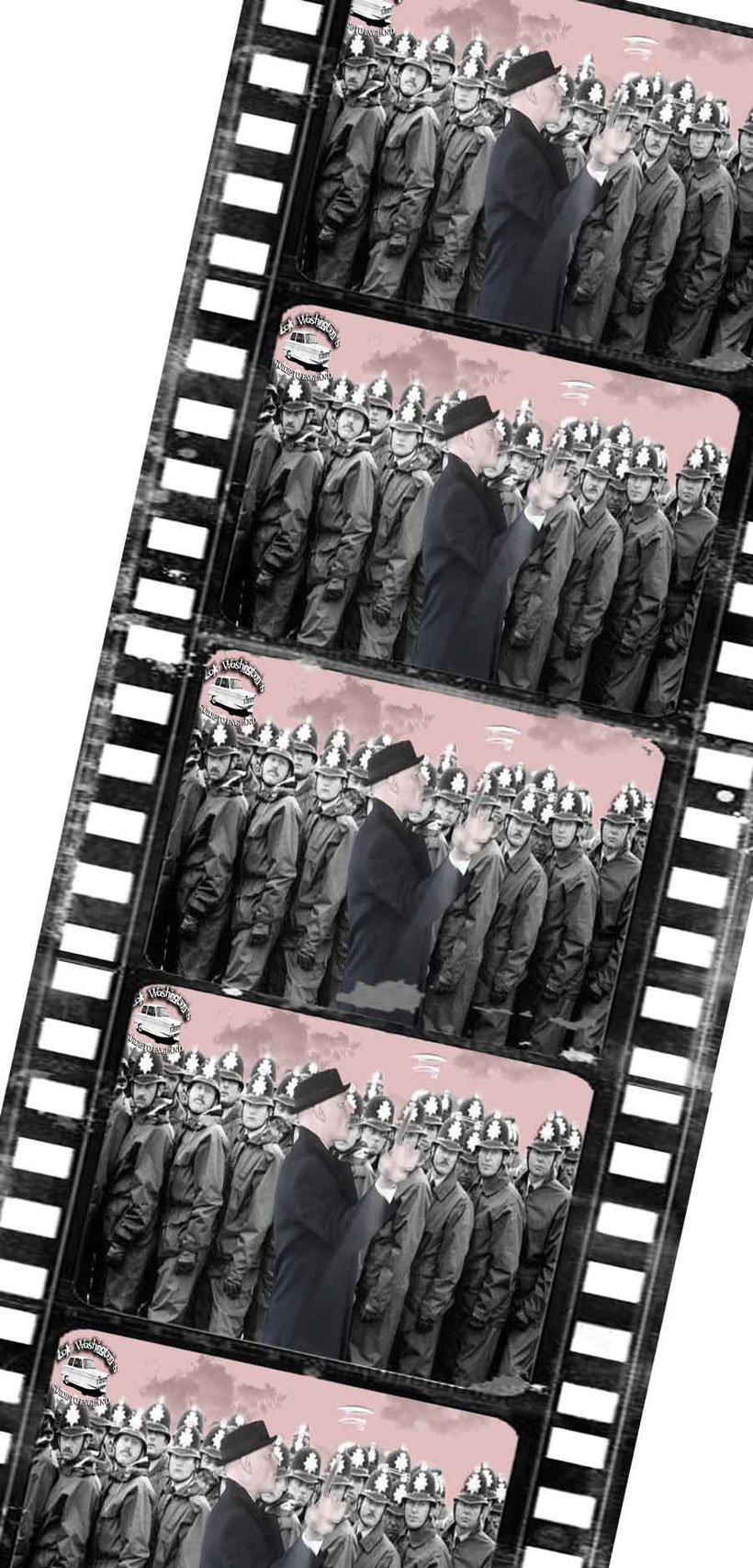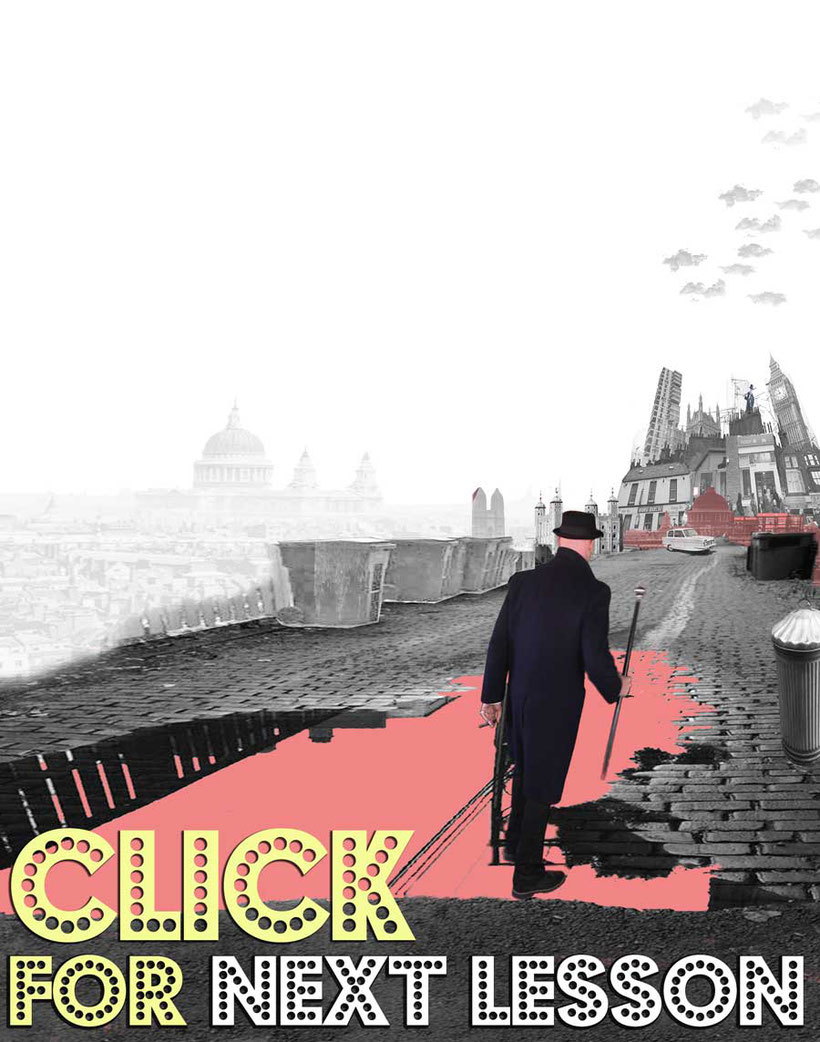LEARN real ENGLISH LANGUAGE & CULTURE - LESSON 12


Today's LESSON 12 teaches how to talk about the media (SP: medios de comunicación, IT: mezzi di comunicazione), the press (SP: la prensa, IT: la stampa) and newspapers (SP: periodicos, IT: giornali) in English.
We will explain step-by-step how to use the verbs 'DO' and 'MAKE' and the passive.
Finally students will practice with communication activities, quizzes and games.
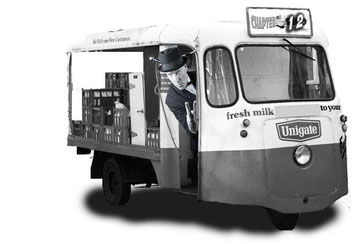
Photo of typical British culture: Vintage English milk float from around 1980. Used to deliver milk to people's doorstep.

Zak Washington, the corrupt English teacher, is too lazy to work at the language school, so he is taking his group of students to visit a ‘cultural’ place of interest. Today we are going to…..
THE NEWSAGENT



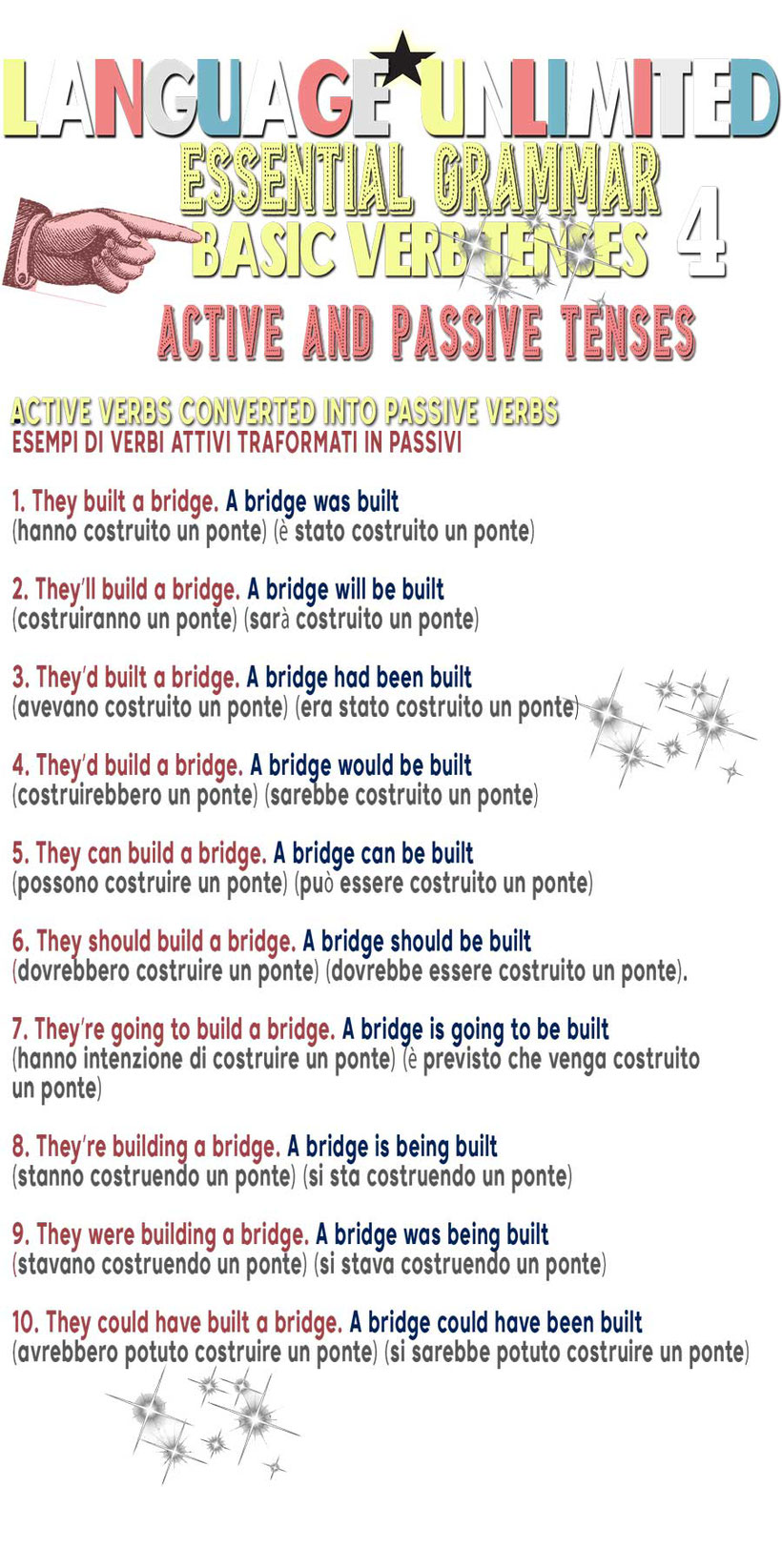



CHAPTER 12 SONG 1
ZAK WASHINGTON: A very good morning to you students! Here we are at 11.25a.m. on a chilly[1], grey, typical London morning. We are going to the newsagent’s (SP: quiosco, IT: edicola).
MARIA: Newsagents? Like Reuters?
ZAK WASHINGTON: No, that’s a news agency. This a type of shop like in every high street. In we go! Come on! Good morning Mrs. Chopra.
MRS. CHOPRA: Oh hello darling (SP: querido, IT: caro).
ZAK WASHINGTON: What do you see Ahmet?
AHMET: It’s full of magazines, newspapers, and chocolate. There are thousands of other things on sale (SP: en venta, IT: in vendita) too.
[1] Chilly (SP: frio, IT: freddino) (adj.) quite cold, but unpleasantly cold sometimes due (SP: debido a, IT: a causa di) to the wind.
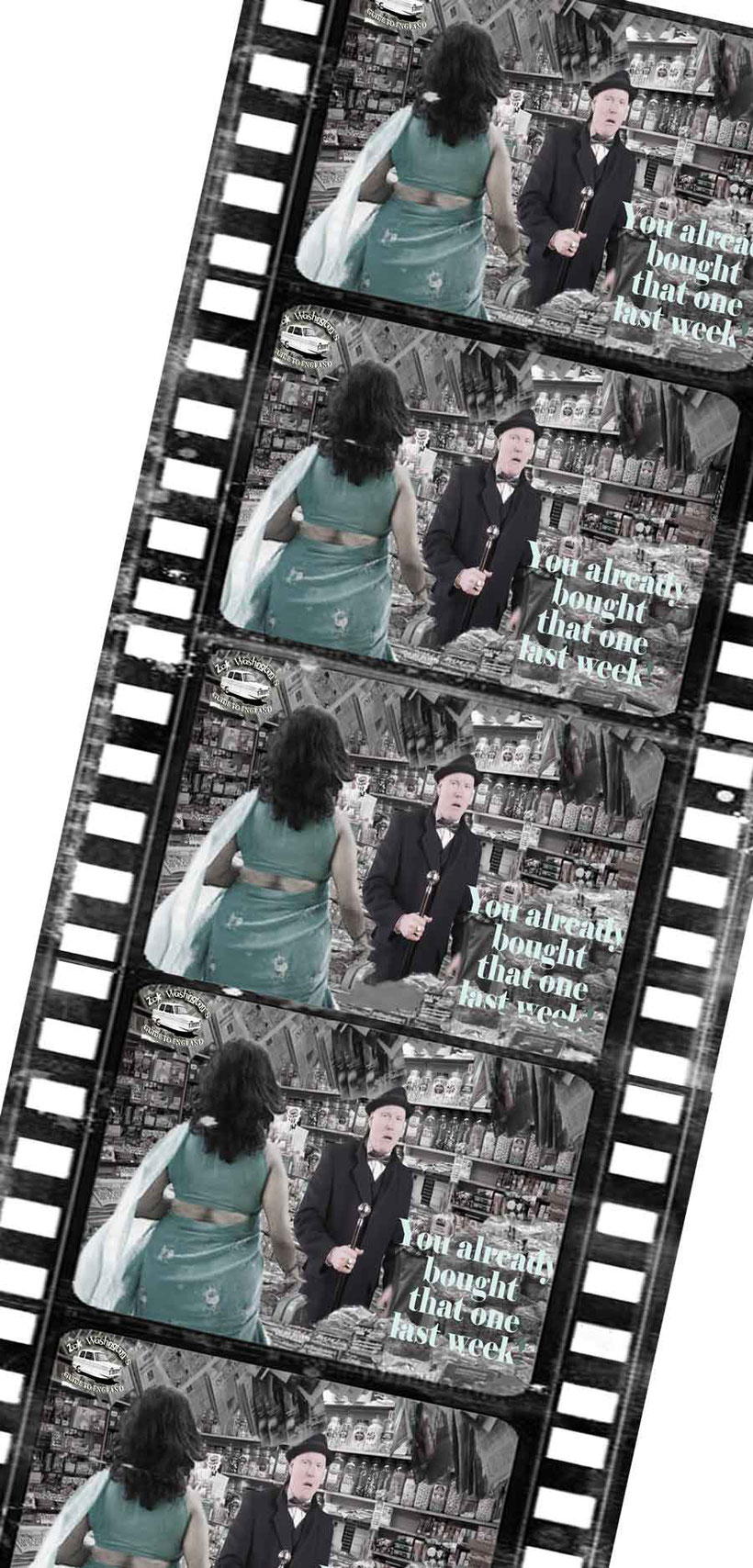

Listen to the song. Draw the interior of this typical newsagent’s according to the descriptions. The teacher will walk around the class pretending (SP: fingiendo, IT: facendo finta di) to be working.
ZAK: In the shop we can see that there is a magazine rack[1] with five large shelves[2]. In front of the rack (SP: baca, IT: scaffale) there are some newspapers piled up. The shelves contain a selection of magazines on various subjects; The top shelf has many magazines wrapped up in plastic. It’s difficult to see the names, but there’s one called Reader’s Wives Christmas Edition.
MRS. CHOPRA: You already bought that one last week.
ZAK: At the side of the magazine rack, there are more shelves with two rows of chocolate (how many syllables?) bars. These are above six plastic containers full of jelly sweets. The English are sweet-tooths, aren’t you, you fatties? Facing the door is the cash till[3], which is on a counter that extends from one side of the shop almost to the other. Behind the counter is an Indian woman with a gold tooth.
MRS. CHOPRA: What are you looking at?
ZAK: She must have been eating too much chocolate!
MRS. CHOPRA: Don’t be so bloody cheeky! (SP: descarado, IT: sfacciato)
ZAK: She has a diamond-shaped jewel in the middle of her forehead (SP: frente, IT: fronte).
MRS. CHOPRA: I’ll tell my husband (SP: marido, IT: marito)!
ZAK: In front of the till is more chocolate. All the daily newspapers are lined up on the counter to the right of the cash till. Directly behind the Indian lady is a cigarette rack. On the right of the cigarette rack there is a large doorway that leads to another room where there is a family watching television. Also hanging (SP: colgando, IT: sospeso) from the ceiling (SP: techo, IT: soffito), going from one side to the other, are Christmas decorations (SP: decoracciones, IT: addobbi). It’s September.
Compare results. Who has drawn the picture which looks most like the description?
ZAK: Let’s have a look at the cover of the newspapers and see what’s in the news today. A s*x scandal? Violence?
SOPHIE: Actually, no! There’s a picture of Ali Fred with a group of drunken idiots at the Royal Revue Bar! They look… they look just like…. us. Oh my God! We’re on the cover of the newspaper.
AHMET: It says, ‘SLEAZY SHEIKH’S BOOZE BINGE AND BIRD BENDER[4]!’ I don’t understand a word of that. What does that mean?
12.2. Explain the newspaper headline if you can.
ZAK WASHINGTON: What this means is that we are in big, big trouble (SP: apuro, IT: guay). Where is Ali?
AHMET: Ali’s at home in the squat (SP: casa okupa, IT: casa occupata). I woke him up at seven this morning to give him his ‘medication’, a vodka and tonic, then he smiled and went back to sleep…
GLOSSARY AND ENGLISH USAGE
[1] Rack (SP: baca, IT: scaffale) (noun) a frame or a shelf for storing things. There are many different varieties. A vegetable rack is what is used in the kitchen to keep vegetables in. A car’s roof rack would be where you put objects that are too big to fit inside.
[2] Shelf (SP: estante, IT: mensola) (noun) a flat object attached to the wall for storing and putting things on. Libraries and shops are full of them.
[3] Cash till (SP: cajera, IT: (registratore di) cassa) (noun) the machine for registering and keeping the money, as well as giving the receipts. Normally referred as the till.
[4] Booze (SP: bebida alcohólica, IT: liquore) (noun) a slang word that refers to any type of alcohol. A boozer can refer to the person who drinks, but more commonly means ‘the pub’. ‘Are you going to the pub?’ ‘Yes. We’re going down the boozer!’ Variations on the same theme include to be on the booze, to booze it up etc. All of which are slang. A binge (SP: borrachera, juerga, IT: baldoria) (noun)(verb) is quick, intense consumption of something that is normally quite bad for you. For example, ‘She went on a chocolate binge,’ means that she ate a large amount of chocolate in a short space of time. Other common binges involve drugs and alcohol. A bender (noun) is basically the same as a binge but refers to the whole process; going out, drinking a lot, laughing, shouting, spending more money than you can afford, having fun etc. A bender doesn’t usually specify the substances consumed and doesn’t have such negative connotations. Compare ‘He went on an enormous bender last night and woke up with a terrible hangover,’ and ‘He went on a cocaine binge, and didn’t stop talking rubbish all night.’ Bird (noun) an unattractive slang word that describes an attractive woman. This is a typical ‘macho’ way to talk about women, particularly by those people who have little or no experience on the subject.


The student with the frizziest hair should explain the difference between the active and the passive. How is the passive formed? Get into pairs. Study the newspaper article below and conjugate the verbs, changing them into active or passive tenses. Remember that in newspaper styles the passive voice is used a lot.

Fill in the following English grammar exercise gap-fill activity:
SLEAZY SHEIKH’S BOOZE BINGE AND BIRD BENDER
Ali Fred, son of Raji Fred, future husband of the Queen’s niece (SP: sobrina, IT: nipote) Lady Sara Winthorpe, and heir (SP: heredera, IT: erede) to the one the country’s richest business empires (SP: imperio, IT: impero), ___________ (to see) last night dancing, singing and hellraising (SP: alborotador, rebelde, IT: istigatore, ribelle) [1], during an all night session of drink and debauchery at the Royal Revue Bar. Raji, 24, _____________ (to arrive) drunk to Soho’s sleaziest (SP: más sórdido IT: più immorale) club, after an all day bender (SP: juerga, IT: baldoria) which ________________ (to begin) on one of the capital’s poorest housing estates (SP: viviendas, IT: complessi residenziali).
Locals from the Nelson Mandela Housing Estate in the poor north London borough of Squatney, ______________ (to watch) in amazement (SP: asombro, IT: stupore) as the handsome playboy ______________ (to lead) into a typical run-down (SP: cascado, IT: cadente) flat on the estate early yesterday morning. ‘We just couldn’t believe it!’ said Hilda Dobson, 58. ‘I _____________ (to return) from the post office with my friend Doris, when suddenly we ________ (to see) Ali Fred accompanied by an English teacher, who ____________ (to live) on the estate for three months. With him _________ (to be) two of his flatmates (SP: compañeros de piso, IT: coi). One of them had blue hair, and the other wore high thigh-length boots and a mini-shirt. Plastic bags full of bottles of spirits (SP: licor, IT: superalcolici) and cans of beer from the local off-licence[2] ___________ (to carry) by a group of youngsters who looked like foreign students.
Booze up. Ranjif Patel, owner of the off-licence was equally surprised. ‘It’s not every day that you get a member of one of the richest families in the world, _____________ (to come) into your shop. What on earth he ____________ (to do) in this part of town, I do not know!’
Several hours later, the sheikh ___________ (to leave) the flat, and made his way to the Soho night spot. There, he _____________ (to match) locals drink for drink, at a party which began at 10 o’clock and ___________
Stripper (SP: estriptista, IT: spogliarellista). According to reports, randy [3], boozed-up (SP: borracho, IT: ubriaco) Fred, ________________ (to chat up) and ____________ (to kiss) women, ____________ (to whistle) (SP: silbar, IT: fisciare) at strippers, and ______________ (to shout) crude comments. The two hundred or so, club-goers who were present _____________ (to buy) round after round of drinks by the millionaire. ‘It were bloody great!’[4] said Dave Hurley, 23 from Orpington, ‘Free booze all night, and top entertainment! That Ali Fred is a fantastic bloke!’
‘It’s certainly not normal to see a man of his fame and social standing, in a place like this. I ___________ (to think) it was against these people’s religion to drink. This guy had a girl on each arm and seemed _______________ (to have) a great time!’ said Roy King, 37, the club’s security chief.
A spokesperson for Raji Fred, 60, father of the sleazy sheikh, ______________ (to refuse) to make a comment on what ________________ (to occur) Mr. Fred who is currently ____________ (to holiday) with the royal family at Balmoral, _____________ (to decline) to make a comment either.
Disappearance. The whereabouts of the drunken playboy are unclear. Allegations of a possible kidnap[5] have been cited, but as yet remain unconfirmed.
GLOSSARY
[1] Hell raiser (noun) to raise hell (verb) a very useful noun and verb to describe a man who is constantly in trouble. Alcohol, drugs, women, breakages, fighting and shouting are normally involved! Oliver Reed, Frank Sinatra, Robbie Williams, Paul Gasgoine, Jim Morrison, Richard Burton, Keith Moon, Liam Gallagher and Kurt Cobain are all men who are/were frequently referred to as hell raisers. Ahmet and Zak Washington are good examples too.
[2] Off-licence (SP: tienda de alcohol, IT: negozio che vende alcol) (noun) a British word for a shop which is licensed to sell alcoholic drinks.
[3] Randy (SP: cachondo, IT: arrapato, eccitato) (adj.) a slang, word to describe someone in the mood for love! Or better said, lust. A popular word in the tabloid newspapers. An often misunderstood word in English is hot which only refers to temperature. If you say ‘I’m really hot today!’ there isn’t a double meaning like in most romance languages. In this case you would have to use turned on/turned off. ‘I find men in uniform a big turn-on.!’ ‘Me too. Firemen’s uniforms always turn me on too!’
[4] Notice the misuse of the verb to be in this phrase. This is a common stylistic characteristic of street language in Britain, especially in London, where people often use was in place of were and vice versa. But this is no excuse for making, what really is, a clumsy mistake. Obviously you have to learn the rules correctly, before you can break them!
[5] To kidnap (SP: secuestrar, IT: rapire) the literal meaning would be ‘to steal a person’ which sounds completely ridiculous. The person is a kidnapper, and the amount of money that is required to get the person back is the ransom, or ransom money.

Below you will see the same story reported in one of the more serious ‘broadsheet’ newspapers. Do the same as above.


The following sentences are all active. How would you make them passive? Present tense.
In Morocco they produce a lot of hashish. A lot of hashish is produced in Morocco.
They smoke most of that hashish in the north of Europe. In the north of………
They make a lot of beer in Britain.
British people drink a lot of foreign beer too.
Present continuous.
They are selling a lot of newspapers today. A lot of …..
Daily Telegraph reporters are writing about a sleaze scandal. A sleaze scandal…..
People are making a lot of money by selling gossip (SP: chisme, IT: pettegolezzo).
The media [1] are telling us such rubbish (SP: basura, IT: stupidaggini) these days. We..
Present perfect.
The newsagent has sold all the papers this morning. The papers….
Reporters have besieged [2] the house. The house….
The press publicist Cliff Maxford has asked if he can represent us. We
He has paid us £3000 in advance for a scandalous story.
Present perfect continuous. (The following are possible, but are normally avoided by natives because they are too complicated! Let’s see how good your English really is. Try them if you can, but don’t worry if you can’t!)
The press have been calling all my friends. (Difficult one this!) My friends
A helicopter has been flying around the area this morning. The area…..
The old ladies in the area have been pointing at my friends.
Ali has been drinking ‘medication’ for two days.
Other tenses in the passive. What would the passive of the following be?
He could be reading the Reader’s Wives magazine. The Reader’s Wives…..
She may be watching that boy next door. That boy next door…..
He must have given the ultimatum to his girlfriend by now.
They will give us instructions on personal safety.
They wouldn’t shout offensive comments at us, if they knew how hard we were.
GLOSSARY
[1] Notice the way that many collective nouns in British English can be written in the plural form. For example in America they say, ‘Chicago is playing very well today.’ In Britain the plural form is preferred. We’d say ‘Chelsea are a rich team.’ This is done when we think of the noun as a group of personalised individuals. Compare the following. ‘The police force is an organisation that…..’ (Impersonal dictionary definition) and ‘The police are coming up the garden path to our front door. Run!! (Far more personal than you’d like.) In the same way we refer to organisations, teams, companies, the government, the press etc. as plural.
[2] To besiege (SP: sitiar, IT: assediare) to surround, to crowd around in a large number. The sort of thing that happens when the army or police arrive in large numbers at a building that contains a dangerous enemy or suspect. Anything that means the sudden arrival of large numbers of people could be described like this. ‘The quiet village was besieged by German tourists after it appeared in the travel guide.’ ‘The fans besieged the record shop when the pop star arrived to sign copies of his new work.’




Match the newspaper headlines from a famous British tabloid newspaper with the correct story
A. BIG-WIG [1] BERT BEDS BUSTY BOMBAY BIRD[2].
B. RANDY ROD’S RIGHT ROYAL RUMPUS.
C. TELL-TALE TORY’S TALL STORY.
D. LIVING IT UP[3] ON THE COSTA DEL DOLE.
E. EL TEL’S HOTEL SELL HELL.
F. BETTY’S BET BUSTS BOOKIES.
G. TUBBY[4] OR NOT TUBBY.
H. NO SLEAZE[5] PLEASE!
1. Ex Barcelona football team manager loses money on the sale of a chain of …..
2. Fat man to take leading role in Royal Shakespeare Company play.
3. Business tycoon has an affair whilst on holiday.
4. Unemployed good-for-nothings falsely claim benefits whilst on holiday.
5. Political leaders ask for a clean scandal-free election to maintain party’s image.
6. Old lady breaks record causing enormous financial problems for turf accountants.
7. Conservative politician in dishonesty scandal.
8. Womanizer doesn’t realise he’s chatting up a princess.
GLOSSARY
[1] Big-wig (SP: pez gordo, IT: persona importante) (noun) Rich and powerful businessman
[2] Bird (noun) (SP: piba, IT: figa, gnocca) vulgar name to describe an attractive girl or woman, as used by ‘macho’ men in the pub. Not usually offensive, but not recommended.
[3] (to) Live it up (SP: vivir a lo grande, IT: godevetela, bella vita) To enjoy. To celebrate. To have fun. To spend etc. Usually with the better things in life. Exotic holidays, good restaurants, fine wines, the next door neighbours wife etc. It all depends on your tastes!
[4] Tubby (SP: regordete, IT: ciccioto) (adj.) Affectionate way of saying ‘fat’ or ‘overweight’.
[5] Sleaze (noun) Sleazy (adj.) (SP: sórdido IT: immorale) A useful word referring to any illegal, immoral, corrupt or lustful behaviour. This word is commonly used to describe politicians.

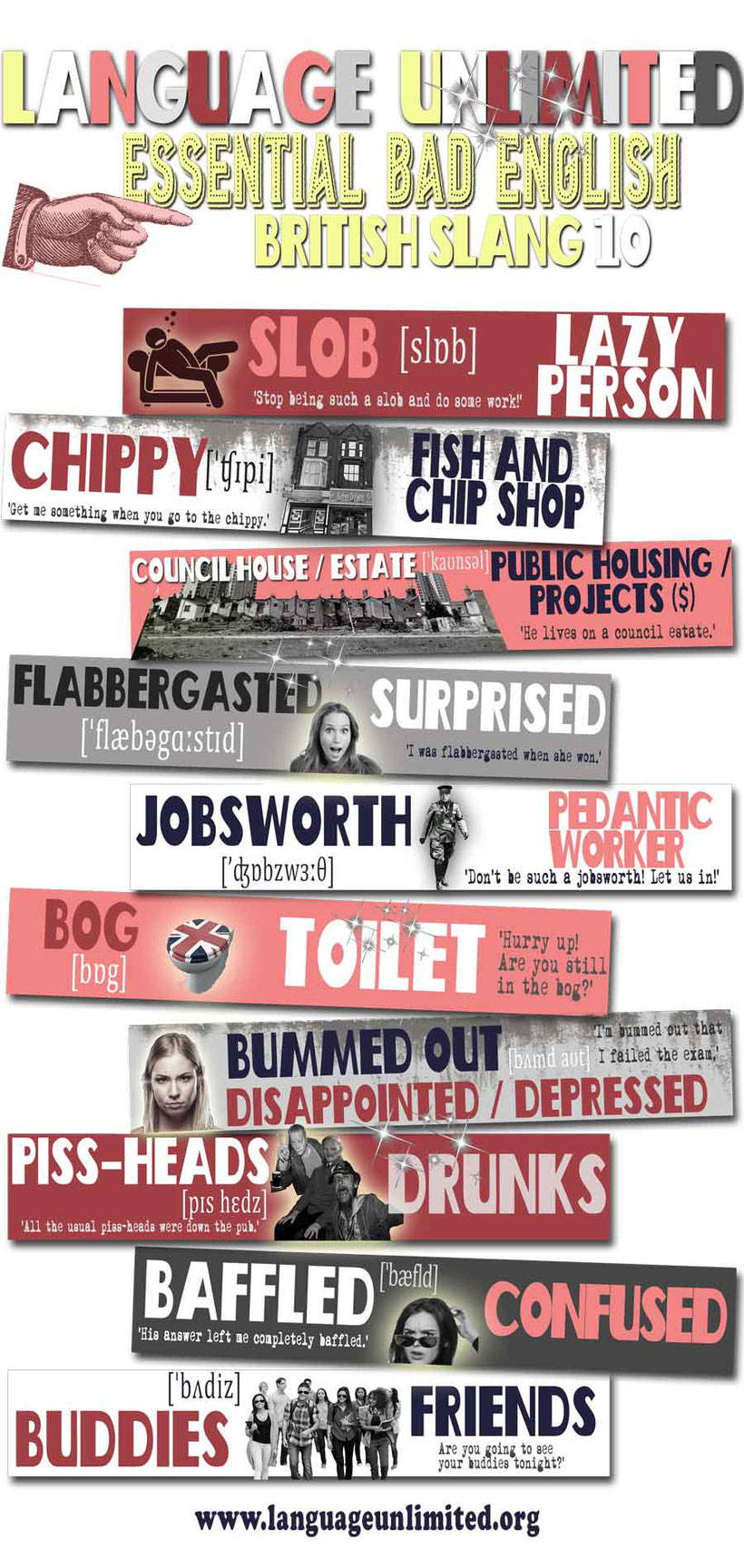

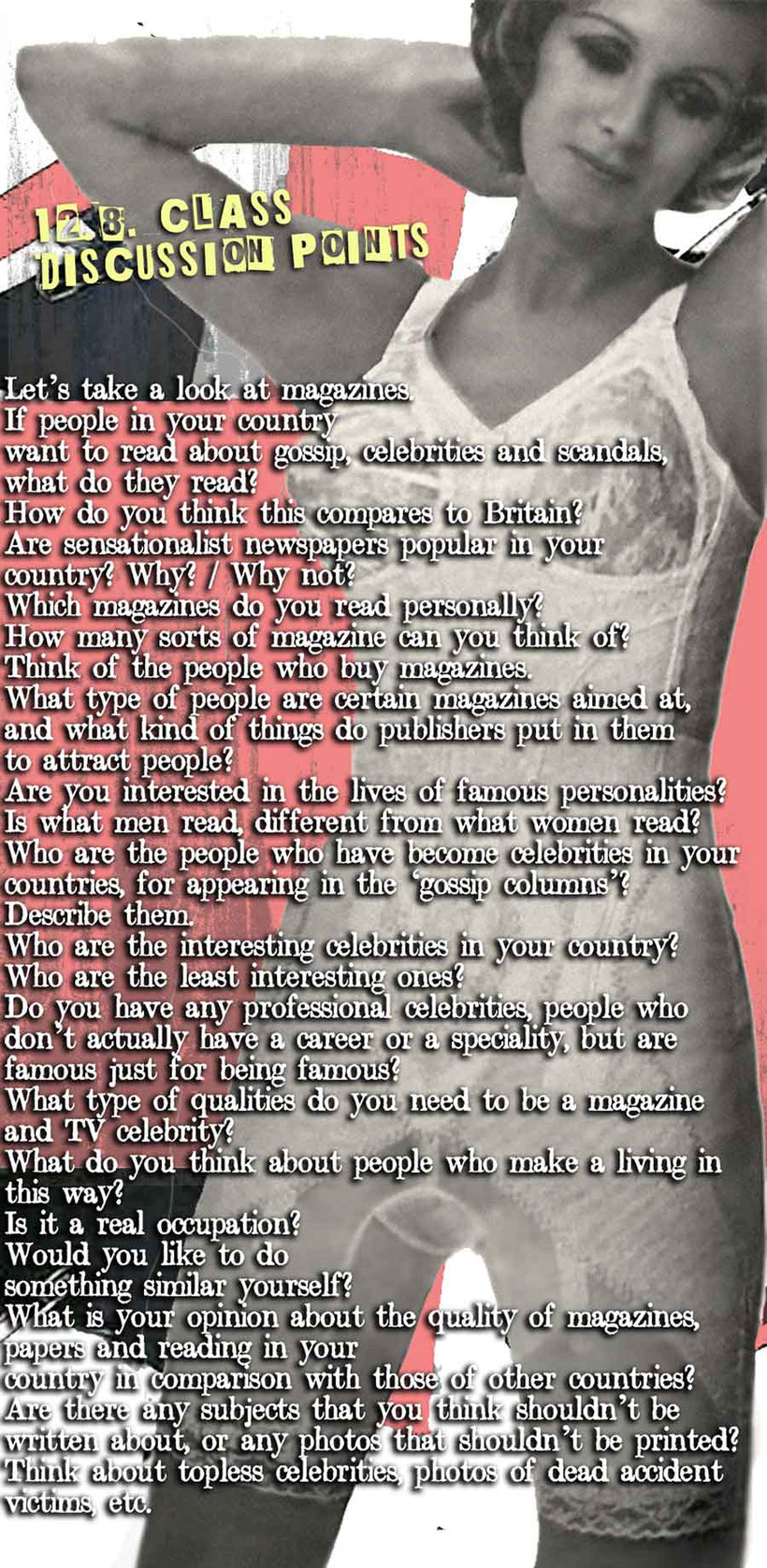
Magazine Questionnaires.
Get into pairs. Student A is a boy. Student B a girl.
Student A. Ask student B the following questions. Don’t let her see the questions.
Student B. You are a woman. Yes, you are. Even the boys. I know you go to the loo (SP: orinar, IT: fare pipì) standing up (SP: de pie, IT: a piedi) and have a beard (SP: IT: barba), but really, you are a woman. Answer the following questions.
ARE YOU A BITCH?
(If student B is not female, tell him to pretend to be.)
1. One of the other girls in the office comes in wearing an enormous hat with fruit on it. Do you say?
a. ‘Who put the fruit bowl on your head loser (SP: perdedor, IT: perdente)?’
b. ‘Pass me a banana Godzilla.’
c. ‘Nice hat. Are you going to Ascot darling?’
2. Your boyfriend is Italian. You are in the street when you bump into an old friend called Jane. How do you introduce your new boyfriend to Jane?
a. Hello Jane! This is my new hunky (SP: tio bueno, jodontón, IT: fusto, muscolare) Italian stallion. Cute (SP: mono, IT: carino) isn’t he?
b. Hello Jane! This is Tarzan. Cute isn’t he?
c. Hello Jane! This is Cheetah. Hairy isn’t he?
3. The girl in the office that you hate leaves her personal diary on her desk when she goes for lunch. It contains all the details of her intimate moments with her boyfriend. Do you….?
a. Have a quick look (SP: echar un vistazo, IT: dai un'occhiata) and then tell the rest of your workmates (SP: colegas, IT: compagni)?
b. Photocopy all the interesting parts and put them up on the wall (SP: IT: muro) for public viewing?
c. Upload directly onto Facebook and Instagram so that the whole world can see it?
4. Which of the following best summarises your opinion about men?
a. They come in useful (SP: útil, IT: utile) on a Friday night after a few gin and tonics.
b. Someone has to take the rubbish out, do the gardening and repair the toilet.
c. The greatest twentieth century innovation was the sperm bank (SP: banco de esperma, IT: banca dello spermo).
5. Another girl at the party is wearing the same dress as you. What do you say to her?
a. I didn’t realise that the same dress came in elephant size (SP: talla, IT: taglia)!
b. Sorry for spilling (SP: derramar, IT: rovesciare) my blackcurrant juice (SP: zumo de grosella negra, IT: succo di ribes nero) down your back. It was an accident honey, honestly.
c. You are a woman of exceptional style and elegance. Congratulations on your exquisite taste.
6. A man’s place is…
a. …wherever he wishes to be. Equality and freedom of choice is essential in a balanced relationship.
b. …in the kitchen and the bed.
c. …wherever I tell the good-for-nothing (SP: sinverguenza, IT: bighellone), pathetic, miserable creature to go.
7. Your ex-boyfriend arrives at the nightclub with a new girlfriend. Do you say…?
a. I’m glad to see that he has found a suitable companion. A man should always have a loveable dog.
b. I’m glad to see that he has found a suitable companion. I wish him all the luck in the world.
c. I’m glad to see that he has found a suitable companion. I didn’t realise that he had a thing for transvestites.
8. When you meet a man that you find attractive, what do you say?
a. It’s a real pleasure to meet a fine, polite, educated gentleman like yourself.
b. Hey you! Yes, you. You’re coming home with me now. Get your coat.
c. Listen creep (SP: desgraciado IT: verme), if I say jump, you jump. If I say make love, you make love. Now get back in the kitchen, finish mopping (SP: fregar, IT: pulire) the floor, and stop crying.
|
1. |
2 |
3 |
4 |
5 |
6 |
7 |
8 |
TOTAL |
|
a. 2 points |
a. 0 |
a. 1 |
a. 1 |
a. 5 |
a. 0 |
a. 2 |
a. 0 |
|
|
b. 3 points |
b. 2 |
b. 2 |
b. 2 |
b. 3 |
b. 2 |
b. 0 |
b. 2 |
|
|
c. 1 point. |
c. 3 |
c. 3 |
c. 3 |
c. 0 |
c. 3 |
c. 3 |
c. 3 |
|
SCORING
RATINGS
0-5 You are respectful, decent, nice, agreeable, easy-going, and relaxed. You are a really lovely person. My God! You are also the most boring, dull, characterless moron (SP: imbécil, IT: deficente) that I’ve ever met. Get a personality! Get a life! (SP: búscate una vida, IT: fatti una vita)
6-15 You’ve got all the makings of a first class bitch. But it needs a little work. Just make those commentaries and remarks a little more caustic and you’ll have success.
16-21 You nasty, catty, cynical, snake-tongued, two-faced dominatrix! Before you came to class today, I thought you were just another student. Now I think I’ve fallen in love with you. Come here you sexy beast. Ouch! Hey! Don’t hit me!
HOW USELESS IS YOUR ENGLISH?
1. Someone asks you where the Post Office is. Do you say…?
a. It’s down the road on the right just past the traffic lights.
b. It’s down the traffic light on the right just past the road.
c. About 4.20 pm.
2. Someone stops you in the street and asks you a very difficult question. Do you say…?
a. I beg your pardon?
b. Get out of my way idiot, this is London Town. Some of us have got jobs to go to!
c. ¿Qué? ¿Mande? ¿Hablas español?
3. You need some change for the bus. Do you say…
a. Have you got the change of £5 please?
b. Have you got any spare change governor?
c. Can you change me for £5 please?
4. Someone approaches you in a bar and says, ‘Hey, I think you are so gorgeous!’ Do you…
a. …hit them? This person is clearly racist and should be dealt with in the most violent manner.
b. …kiss them? They are clearly in love with you and you in love with them.
c. …tell them to shut up (SP: cállate, IT: stai 'zitta)? There is nothing wrong with being a little over-weight.
5. Someone says ‘How do you do?’ What do you reply?
a. ‘How do you do?’
b. ‘Do what?’
c. ‘I’m a student. And you?’
6. Someone says ‘Hey, what’s up?’ Which of the following do you do?
a. Look serious and say sensibly, ‘It’s the opposite of down.’
b. Look upwards and remark, ‘The sun, the sky and the clouds.’
c. Look them in the eye and say, ‘How’s it going? I haven’t seen you for a while (SP: rato, IT: un po' di tempo).’
7. You are in a restaurant when you hear someone at the next table say, ‘I can smell a rat.’ Do you…?
a. …ask the waiter what type of sauce it comes with, and order one too?
b. …call the food hygiene inspectors? This restaurant must be filthy (SP: inmundo, IT: sporcissimo).
c. …think that they have noticed some suspicious behaviour?
8. You have to answer the telephone in your job at the hotel reception. Which would you say?
a. I am Natalia LeBlanc, and my services are here to be taken advantage of.
b. Can you help me? I’m Natalia LeBlanc.
c. This is Natalia LeBlanc. How can I help you?
SCORING
|
1. |
2 |
3 |
4 |
5 |
6 |
7 |
8 |
TOTAL |
|
a. 3 points |
a. 3 |
a. 3 |
a. 0 |
a. 3 |
a. ½ |
a. 0 |
a. 0 |
|
|
b. ½ point |
b. 2 |
b. ½ |
b. 4 |
b. 0 |
b. –1 |
b. 0 |
b. 0 |
|
|
c. 0 point. |
c. 0 |
c. 0 |
c. 0 |
c. 0 |
c. 3 |
c. 3 |
c. 3 |
|
RATINGS
0-5 Hello. My name is teacher. You are the student. What? You don’t understand? No. I am the teacher. You are the student. Look! It’s easy. Me teacher. You student. Oh, God. Look you imbecile. The beginner’s class is at the end of the damned (SP: maldetto, IT: dannato, maledetto) corridor. Clear off! (SP: lárgate, IT: vai via)
6-15 A mediocre result. You have a reasonable command of the English tongue. Your grammar, vocabulary and general understanding of the language need work. You are clearly an American.
16-25 What a fine example of bilingual intelligence you are…. and damn good-looking too. Buy yourself a big cream doughnut and a bar of chocolate after class. Go on! You deserve it.
26-30 You good-for-nothing rotten cheat. You are clearly either Spanish, Greek or Italian. No one else could cheat as much, or be so bad at mathematics. The maximum possible score was 25! You thought everybody would think that you were really intelligent, didn’t you? Now everyone is laughing. Shame on you!


CHAPTER 12 SONG 2
LISTENING EXERCISE
This is a LEARN ENGLISH WITH ZAKWASHINGTON audio recording with a listening exercise.
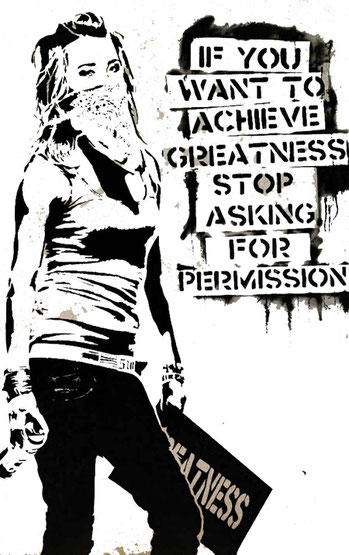
ENGLISH LANGUAGE GRAMMAR EXERCISE DO or MAKE or another verb?
We know the story. You’ve been studying English for fifteen years, and you still don’t understand the difference between ‘do’ and ‘make’. Are there any grammar rules for this? What are they? The main problem is not only using DO instead of MAKE, but also in mistakenly using one of these verbs, when in English we use a completely different verb. Get into pairs. Read the text below inserting DO or MAKE (or another verb if it is more appropriate).
ZAK WASHINGTON: Let’s get back to the flat. We need to ________ a plan. We have __________ quite a mess. What are we going to ________?
AHMET: Well, let’s look at the situation that we are in. There’s a drunken man about a kilometre from here. We need to go and get him home so that he won’t remember anything and won’t be able to _______________ any harm. If he walk out into the street, he’ll find a hundred reporters waiting to ___________ him an interview, and a hundred photographers waiting to ___________ his photo. We will be in big trouble. We’ll end up in prison and we will be deported back to our countries.
ZAK WASHINGTON: Yep. Then we’ll have an international situation. The Queen was going to let one of her relations marry this man. Now the good reputation that he has spent years _________ has been ruined. He has been corrupted and turned into an alcoholic …... by us!
SOPHIE: By you more like!
GIOVANNI: We need to _______ Ali out of that flat as quickly as possible, without anybody finding out. All we have to do is to put him onto an aeroplane and get him back to his home country and then we just pretend that it was all a case of mistaken identity.
AHMET: Yeah, but how are we going to ______________ that?
GIOVANNI: It’s very easy. I have got an idea. All we have to ________________ is to organize a press conference in a different part of town and we’ll explain about what really happened and all the reporters will go there.
AHMET: Great idea!
ZAK: Oh yeah. That’s a fantastic idea, that is. And then….. yeah, right… all the reporters and the press will go over there. All we need is somebody who can keep talking for a while without really saying anything…
AHMET: Who can do that?
EVERYBODY: (getting the same idea at the same time) THE TICKET INSPECTOR!!!!
ZAK WASHINGTON: You Sir, are a genius.
Explain in your own words what the student’s plan is? What are they going to do with Ali? How is the Ticket Inspector involved in the plan?
30 minutes later in the Halston Palace Café the press conference begin. At the same time, the rest of the group go over to the squat to pick up Ali Fred. Fortunately he is still a drunk. The group of students decide to stay there to have a little refreshment. A nice cup of tea for everybody, and a large whiskey and coke for Ali. Sophie decides to read a little more of the news in the daily newspaper.
MARIA: What else is happening in the news?
SOPHIE: There’s a story about a ticket inspector who has been kidnapped.
MARIA: That sounds interesting. Read that to us.

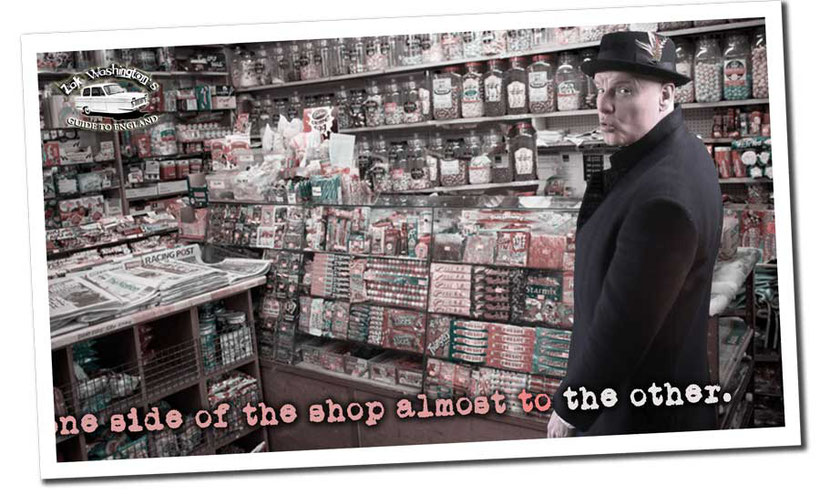
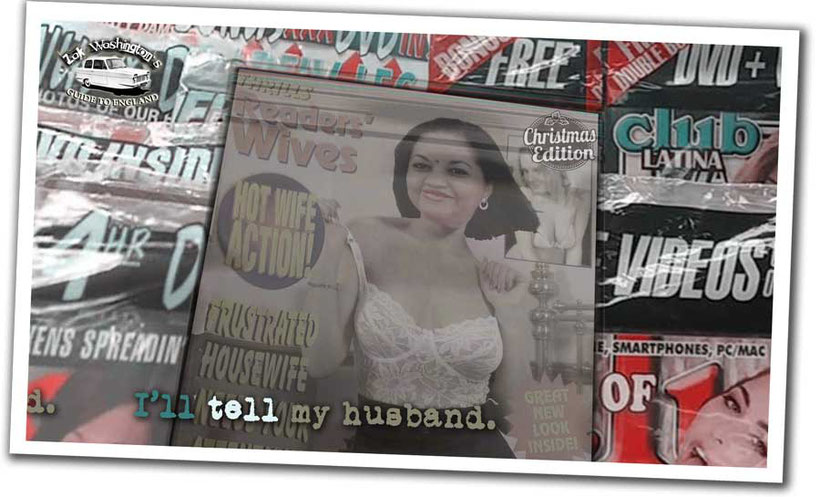
STUDENT PAIR-WORK DICTATION.
Get into pairs. You are going to take it in turns to dictate a story from page five of today’s Penny Post newspaper. In this activity you will use all four skills, reading, writing, listening and speaking. Student A will read the text below. Student B will find their text below. While Student A reads, Student B will write. Take it in turns. Follow the numbers.
STUDENT A.
1. Mysterious disappearance of ticket inspector.
The police are looking into the mysterious disappearance of one of London Underground’s employees. They believe that he has been kidnapped. The ticket inspector, who has been missing since yesterday, normally works in the ticket office in King’s Cross tube station. He was last seen working there at about eight o’clock last night. Various witnesses were present during the alleged abduction.
_______________________
3. Other reports state that the girl passed out. The party were also asking for medical assistance for a gentleman who appeared to be of Eastern persuasion. The group then proceeded to attract the attention of the missing ticket inspector, who came to their assistance, and became involved in some kind of discussion with the group. The ticket inspector, who, according to reports, has little knowledge of English, requested the assistance of various colleagues, who were seen to be observing the whole affair from the other end of the entrance hall.
_______________________
5. The ticket inspector, on arriving at the ticket barrier in Leicester Square Station, again opened the emergency gate, allowing the remainder of the group to pass through. A brief confrontation then took place between the station guards and various members of the group, one of whom was heard to insult members of the transport authorities by calling them ‘jobsworths [1]’. ‘I was only trying to do my job,’ stated Mr. K. Y. Grayson, of Middlesex, ‘What we do, is offer a valuable service to the community. To be called “a jobsworth” is extremely offensive.’
[1] Jobsworth (noun) a classic piece of British slang that describes a pedantic person who takes their job very seriously. This person will follow the job’s rules with such strictness, that they make everybody else’s lives complicated. It is derived from a phrase such as ‘I can’t do that, it’s more that my job’s worth’, meaning that ‘If I break the rules, I might lose my job.’ Does this sound like a familiar situation? Yes, I thought so. Britain is full of jobsworths. Classic jobsworth phrases include; ‘Sorry mate. You can’t do that here!’ ‘I’m afraid I can’t let you in, unless you have the correct ticket.’ ’I know you only have £24.99, but the price is £25. I can’t let you have it!’
STUDENT B.
Mysterious disappearance of ticket inspector.
_______________________
2. The incident took place in front of the ticket hall. According to reports, a group of some ten youths, dressed in bright coloured clothes entered from the direction of the bus stop. Witnesses claim that the youths were in a state of merriment, and were probably under the influence of alcohol. Mr. J.Q. Butterworth, from Huntington, who was buying a travelcard, overheard the group talking about the price of train tickets. One of the group, a female of some twenty five years, is described as shouting hysterically about the price of a train ticket.
_______________________
4. The group, according to other employees of London Transport, were seen to pass through an emergency barrier, which had been opened by the ticket inspector in question, shortly before disappearing down the escalator. The ten suspects then headed south on the Northern Line, and were next sighted in the exit of Leicester Square underground station. Marjorie Twigger, an employee in the Foyer Newsagent’s near the exit, believes that the group were merely trying to avoid the rail fare. ‘Public transport prices are astronomical, and people will do anything to avoid paying,’ she states.
_______________________
6. The suspects then turned full-circle and ran away down the platform, forcing the ticket inspector to accompany them. Passers-by claim that the group were yelling on the top of their voices, and that obscenities were shouted. King’s Cross Transport Police, describe the group as a multinational mixture of races, including an Englishman, and a gentleman baring a distinct resemblance to the eldest son of business mogul Raji Fred. The search continues.
When you have finished close your books and retell the story using your own words.
ZAK WASHINGTON: This is going from bad to worse! Now they are accusing us of kidnapping the Ticket Inspector!
MARIA: (crying) I can’t believe that I was stupid enough to come to this country. I don’t want to go to prison.
ANJA: Hopefully the Ticket Inspector will be able to clear up this mess at the press conference!
In the Halston Palace Café our good friend the ticket inspector is sitting surrounded by three hundred reporters and photographers. There are so many people, in fact, that over a hundred journalists can’t get inside and have to wait outside in the street. There are representatives from the international press, representatives from the royal family, diplomats from the The Free People’s Republic of Zangonia who are very worried about their country’s image, Scotland Yard police chiefs, members of the KGB, the CIA, the BBC, the FBI, the Village People Fan Club[1], etc.)


LISTENING EXERCISE
This is a LEARN ENGLISH WITH ZAK WASHINGTON audio listening exercise for students of English.
CHAPTER 12 SONG 3
THE TICKET INSPECTOR: (sitting nervously at the front and trying to make himself heard.) Ladies and gentrymen. Thanking you most very much for attending this day of the press conference. We’s here for, in order to, so as to, communication for about you what has been happening regarding the most very good friend the Ali Fred. 12.11. Bad English. Correct him!
REPORTER FROM THE DAILY TELEGRAGH: Could you confirm some of the allegations[1] made this morning in the popular press regarding this Ali Fred and the mysterious lady?
THE TICKET INSPECTOR: The sightings most very good! Lady Forbsworth! Most precious lady of stupendous proportions! Ali sighting her. I sighting her. Everybody sighting her! We is loving her most very much! 12.12. Rotten English. Correct him!
REPORTER FROM THE DAILY EXPRESS: Could you tell me who this Lady Forbsworth is exactly?
THE TICKET INSPECTOR: Yous has not metted her already? Everybody is knowing this charming aristocratic lady. 12.13. Dreadful English. Correct him!
REPORTER FROM THE TIMES: (consulting a laptop computer) According to the Online Who’s Who[2] of the British Aristocracy, there is a Lady Forthworth of ninety years of age who resides in Yorkshire! Is this the woman you are referring to?
THE TICKET INSPECTOR: (thinking the reporter said ‘nineteen’.) Nineteen? Oh yes. That is she. Me thinked that she be a little older, because she have a body most attracting to look at. 12.14. Atrocious English. Correct him!
REPORTER FROM THE DAILY MAIL: Could you explain to us exactly what the relationship is between this woman and Mr Fred? Are you telling us she was present at the Royal Review Bar?
THE TICKET INSPECTOR: Oh, you not know? She was only putting off the cloths. 12.15. Diabolical English. Correct him!

English language vocabulary to describe the press and the media.
Match the following words with the correct definition.
1. Gossip column
2. Editor
3. Agony Aunt
4. Headline
5. Sleaze
6. Mogul
7. Stop press
8. Hack
9. Tabloid
10. Problem page
11. Broad-sheet
12. Subscription
a. A more serious newspaper with a larger size.
b. Powerful head of a large media group.
c. The very latest news before a paper is printed.
d. A writer who deals with reader’s problems.
e. The title of the main story in a paper or magazine.
f. Money paid to receive a magazine regularly.
g. A nickname given to a journalist.
h. Person who decides on a publication's content.
i. The part of a magazine dedicated to reader’s troubles.
j. Smaller format of newspaper, normally sensationalist.
k. Part of a magazine about celebrities and glamour.
l. Illegal, immoral or corrupt behaviour. Usually sexual.
REPORTER FROM THE DAILY TELEGRAGH: She was what? Putting off her clothes? Don’t you mean ‘taking her clothes off’? What? A ninety year old member of the British aristocracy?
REPORTER FROM THE DAILY MAIL: This is unbelievable!
REPORTER FROM READER’S WIVES MAGAZINE: This is scandalous!
REPORTER FROM THE DAILY TELEGRAGH: This is absolutely preposterous. You are trying to tell us that a ninety year old member of the British aristocracy strips off in bars?
THE TICKET INSPECTOR: I is wanting to be marrying with me to this loving lady. Ali is wanting too. Everyone in Soho is loving also. 12.17. Terrible English. Correct him!
REPORTER FROM THE CATHOLIC HERALD: Good Lord! Exactly how many people are we talking about here?
THE TICKET INSPECTOR: In Soho all the mens is loving her. In the night of yesterday there was about two hundreds. 12.18. Dire English. Correct him!
REPORTER FROM THE DAILY MAIL: This is unbelievable!
REPORTER FROM THE DAILY EXPRESS: Scandalous!
REPORTER FROM THE GUARDIAN: Is Ali Fred also planning to marry...... Lady Forbsworth?
THE TICKET INSPECTOR: I is thinking that..... I means....
REPORTER FROM THE WASHINGTON POST: Can’t we get this man to just say ‘yes’ or ‘no’? Listen. Say ‘yes’ or ‘no’. Keep it simple!
THE TICKET INSPECTOR: Errr…. Yes. (Not understanding the questions, the ticket inspector decides that a simple yes/no answer can’t do much harm. So from this point he doesn’t listen to the questions any more, and only answers 'yes' or 'no' at random[3].) Yes.
REPORTER FROM THE GUARDIAN: Will Ali Fred marry a member of the royal family?
THE TICKET INSPECTOR: No
REPORTER FROM THE NEW YORK TIMES: Is it true that he has been kidnapped[4]?
THE TICKET INSPECTOR: Yes.
REPORTER FROM THE DAILY STAR: Has he been kidnapped by this group of drunken foreigners?
THE TICKET INSPECTOR: Yes.
REPORTER FROM THE EVENING STANDARD: Are you personally involved with this terrorist gang?
THE TICKET INSPECTOR: Nes.
REPORTER FROM THE MAIL: Is the leader of this terrorist gang[5], by any chance, this Zak Washington character?
THE TICKET INSPECTOR: Yo.
REPORTER FROM THE GUARDIAN: Wait a minute! I know you! You are the ticket inspector that was kidnapped yesterday.
THE TICKET INSPECTOR: Yes. Yes. Yes.
REPORTER FROM THE GUARDIAN: Do you mean to tell me that this part of the same conspiracy?
THE TICKET INSPECTOR: Yes. Yes. Yes.
REPORTER FROM THE DAILY MAIL: This is outrageous. Call the police!
REPORTER FROM THE EVENING STANDARD: What we’ve got is a major criminal crisis here! Blackmail, kidnap, fraud, extortion, treason, terrorism. You name it. This gang are at it[6]! 12.19. Explain the different crimes that he is talking about.
REPORTER FROM THE EVENING STANDARD: These people are ruthless psychopaths, who will stop at nothing to achieve their objectives! We must find a way to stop these lunatics!
(Suddenly everybody is standing up shouting at each other, yelling [7] into mobile telephones, and writing away on their laptop computers. In the chaos, everybody is too busy to notice The Ticket Inspector, who disappears out of the back door.)
GLOSSARY
[1] Allegation (noun) an accusation. When someone says that another person has done something, usually illegal, wrong, or not very nice. A legal word. ‘What is your reaction to the allegations made against you?’ ‘Well, they allege that I was selling imitation perfume to tourists outside Oxford Street tube station......’
[2] Who’s who (noun) a list or catalogue of names that are well-known or ‘important’ within different fields. Traditionally these were books containing lists of people such as Debrett’s Peerage, a book listing names of the British aristocracy. Now on the Internet there are thousands of Who’s who guides. Type in who’s who, followed by the preposition in or to, and then write the name of the subject that you are interested in. ‘His address book is like the who’s who of the world of golf.’
[3] Random (noun) (adj.) randomly (adverb) decided or chosen by chance, instead of by reason or plan. ‘They chose the contestants at random, without checking their background first.’
[4] (to) kidnap To take or capture a person illegally. The person is then held in captivity, and then a ransom, which is a sum of money, is asked for. The person committing the crime is a kidnapper. If you have had to consult this footnote, this means that you have not been learning the vocabulary properly. We have only just learnt this verb in this chapter. These words must be memorised!
[5] Gang (noun) a group of people, usually men. In one context, this would mean people who are involved in some kind of illegal activity. ‘The Charles Street Gang are the meanest criminal gang in the city.’ In another, the meaning would be a very close group of friends, a club, or a team, that are interested or involved in the same type of thing. ‘Let’s have a party and invite the whole gang.’ (All our friends.)
[6] (to be) at it a useful informal way of saying ‘to be doing it’. ‘Oh no. The children are at it again, climbing the garden trees. How many times have I told them not to? You should be careful as the meaning often implies sensual activity. ‘Mr. Jones came home and caught his wife at it with the milkman.’
